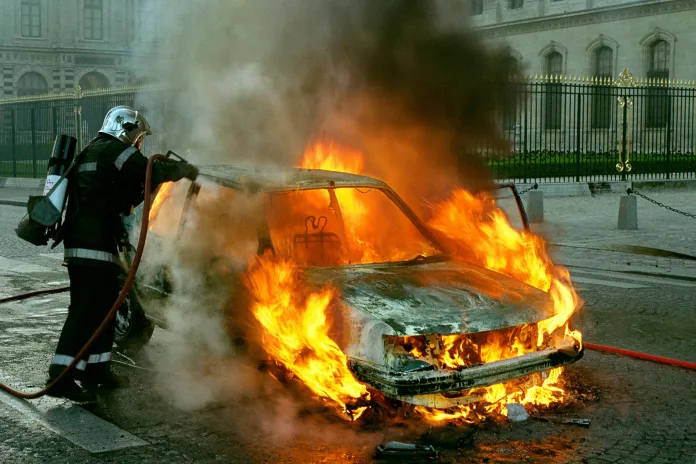Devastation struck Luton, UK, with a catastrophic car park fire leading to injuries and the destruction of over a thousand vehicles. While the events that unfolded are deeply tragic and have affected many, from the injured to the emergency services, they have also given rise to discussions that touch on a pervasive problem within the automobile industry.
The Origin of the Blaze
Diesel engines are known to be relatively safe, but when a diesel Range Rover ignited in the Luton carpark, questions about their safety arose anew. While diesel requires significant heat to combust, a flaw in the Range Rover saw fuel ignited by hot engine components, a fault for which Land Rover had previously issued recalls.
A History of Electrical Mishaps
British automotive craftsmanship carries a mixed reputation. Jaguar, for instance, has a history of electrical system failures, often leading to the infamous nickname for Lucas Electrical, ‘the Prince of Darkness’. Now united under Tata as Jaguar Land Rover, this incident is a reminder of the risks associated with vehicle faults.
Past Incidents Echo in Luton
A historical parallel can be drawn to a Liverpool car park ruined by another Land Rover fire six years prior, with enormous damage caused. This recurring risk spotlight the complex feelings around these status symbol vehicles within UK culture.
Cultural Status and Its Discontents
Range Rovers and Land Rovers often serve more as urban statements of affluence than functional rural tools. These vehicles are used as markers of identity, aspirations to be part of an elite class, just as large pickup trucks serve in the United States.
Media Takes on the Fires
The Daily Mail, a popular tabloid, has paid considerable attention to the combustibility of Land Rovers, catering to a demographic with an appetite for seeing the fall of the high and mighty. This coverage touches on deeper themes within British culture, including class dynamics and cultural portrayals.
The Electric Car Scapegoat
Contrary to the established cause of the Luton fire, speculation often wrongfully targets electric vehicles as the culprits in such catastrophes. Despite evidence showing that electric vehicles are less prone to fires compared to their internal combustion counterparts, public perception is swayed by sensationalist reporting and entrenched cultural narratives.
Hydrogen Power Misconceptions
Similarly, the narrative surrounding hydrogen as an energy source often ignores economic practicalities, leaving fans of the technology with mistaken optimism. Despite this, factual reporting and analyses that highlight the economic pitfalls of hydrogen rarely make headlines.
Sticking to Traditional Battles
In the face of shifting blame games and evolving vehicular technologies, The Daily Mail remains focused on its longstanding cultural battles, undistracted by the anti-EV sentiment and continuing its coverage of the Land Rover incidents.
This Luton carpark tragedy underscores deeper issues within not only the automotive industry but society’s perceptions of technology and status. From media portrayals to the persistent hazards of certain vehicle models, the flames in Luton shine a light on the complexities of our cultural relationship with the cars we drive.
























